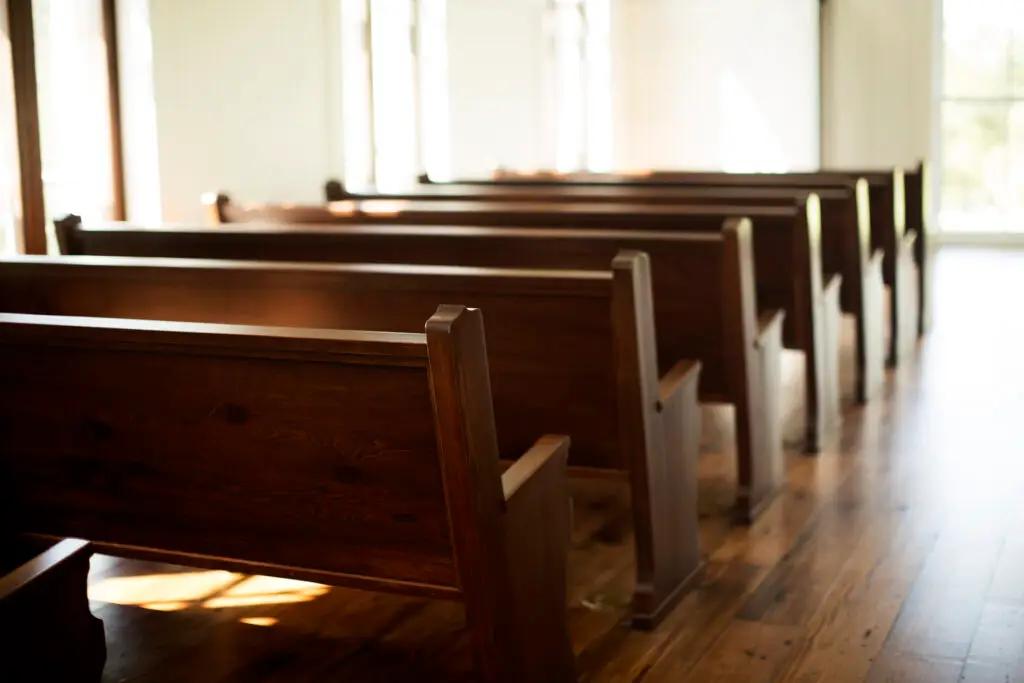Imagine you are a member of a church that rents a theater for worship. Every Sunday morning you meet without incident. In fact, God has providentially used this location to reach the rich and the poor for the gospel. Thousands, who otherwise would have not heard an evangelical sermon, now sit under the preaching of your eloquent, doctrinally sound pastor. The owners of the theater, however, want to change the lease. They desire to rent out the facility on Sunday evenings for entertainment to make more money. This new arrangement will not affect your church services in the morning. What would you do? Would you advise your church to stay or go? Would you consider opening a theater for entertainment to be a violation of God’s law?
Charles Spurgeon (1834-1892) faced this scenario in 1859. His church in London had exceeded capacity even after expanding the building. To provide room for the crowds, the church decided to build a new church building which would become the Metropolitan Tabernacle. In the meantime, while the new building was under construction, the church rented the Surrey Music Hall for services on Sunday morning. Spurgeon’s preaching filled this venue for entertainment which had a capacity of 10,000. God was saving souls through Spurgeon. Yet the proprietors of the venue wanted to make more money and decided to rent it out for shows on Sunday evening. How did Spurgeon respond?
As a convictional Sabbatarian, Spurgeon broke the lease. Even though the new arrangement would not interfere with his congregation’s worship on Sunday morning, Spurgeon could not give money to an enterprise who broke God’s fourth commandment. In a letter to The Christian Watchman and Reflector, Spurgeon explained his decision:
The proprietors of the last named place had twice attempted to open it on Sunday evenings for music and amusements. I was, however, able to prevent this by threatening to cease my occupation, and as we paid a rent of more than £700 a year, ($3500,) [sic] they were not willing to lose so large a sum, and therefore gave up their unhallowed design. Now, however, they have conceived the idea that my preaching injures them; for the people will not come to dance and drink on week days in a place where the Word is thundered out on Sunday mornings. This, I think, is very likely to be a near guess at the truth; for two companies have been broken up since I have preached there, and a blind man can see the end of the present one. I left the place on the very day upon which it was opened for Sunday desecration.[1]
For Spurgeon, doctrinal convictions trumped pragmatism. To make this decision to leave the Surrey Music Hall required great sacrifice. The church went back to Exeter Hall to hold their services, but its capacity was one-third of the Surrey Music Hall. Instead of preaching to 10,000 people, Spurgeon would preach to 3,000. Many of those present at the previous venue would not be able to hear Spurgeon preach the precious truths of the gospel. Surely these considerations should allow Spurgeon to remain at the Surrey Music Hall for the sake of these souls. Would not God want Spurgeon to evangelize as big a crowd as possible? Would not this be God’s will?
To understand God’s will, Spurgeon turned to the Bible and his family’s understanding of the Christian Sabbath. At the end of his last service at the Surrey Music Hall on December 11, 1859, Spurgeon justified his leaving this venue:
On two occasions before, as our friends are aware, it was proposed to open this place in the evening, and I was then able to prevent it by the simple declaration, that if so I should withdraw. That declaration suffices not at this time; and you can therefore perceive that I should be a craven to the truth, that I should be inconsistent with my own declarations, that in fact, my name would cease to be Spurgeon, if I yielded. I neither can nor will give way in anything in which I know I am right; and in the defence of God’s holy Sabbath, the cry of this day is, ‘Arise, let us go hence!’[2]
To be a Spurgeon meant being a Sabbatarian. To be obedient to God’s Word, for Spurgeon, meant keeping the Sabbath command even if it was inconvenient. Throughout his life, he practiced, preached, and advocated for Sabbath observance. These convictions came from the Bible and not from the ideals of Victorian culture in the 19th century.
[1] Spurgeon, Charles Spurgeon’s Letters to the Christian Watchman and Reflector, 1859–1863, 19.
[2] Spurgeon, NPSP, 6:32.

















